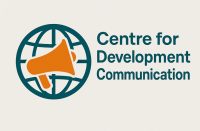Most climate and development interventions still rely on participation in development, a top-down approach disguised as inclusion.
Donor systems reward speed over substance. Urban-based planners and project officers often underestimate the intelligence and lived realities of rural communities. Meanwhile, reporting frameworks prioritize checking boxes over building genuine, long-term relationships.
The result? What scholars have described as “development theatre” staged participation that lacks true empowerment or transformation.
If climate change is to be addressed meaningfully in rural Nigeria, our communication must evolve. It must move beyond broadcasting messages to building relationships rooted in trust, dialogue, and shared ownership.
In my 2024 study published in the Adamawa State University Journal, I found that Indigenous Knowledge Systems play a critical role in helping rural farmers adapt to climate change. Why? Because they offer homegrown, practical solutions grounded in local reality.
We don’t need more participation in development. We need participatory development, anchored in indigenous knowledge, mutual respect, and shared power.
Because when farmers truly understand, lead, and own the process, they don’t just adapt, they innovate.
